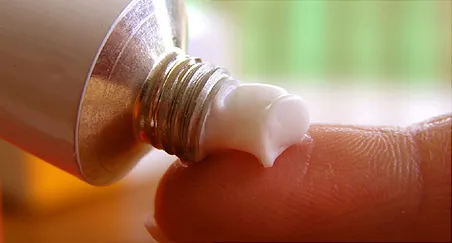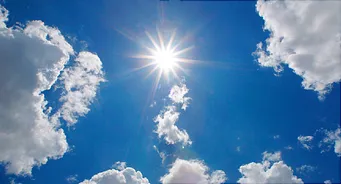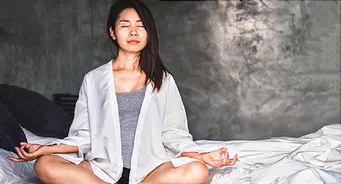En Pointe: Dancing In My Skin
Reviewed by Brunilda Nazario on October 15, 2021
Video Transcript
[APPLAUSE]
[MUSIC PLAYING]
MELISSA: When I was younger, I envisioned myself as the white swan. It's a hallmark of classical ballet. It's from the famous Swan Lake. The white swan is a girl trapped in the body of a swan. So she's not her true nature.
And that's exactly how I felt, trapped behind a deceiving exterior. You don't have a chance to be who you are. I think that's the most difficult thing. You can't say, hi, my name is Melissa. You have to say, hi, my name is Melissa, I have psoriasis, and it's not contagious.
MIKE LEEOLOU: So Melissa first-- we noticed the psoriasis in Melissa when she was about one year old. And from an adult point of view, I never heard of psoriasis. So when I first heard she had psoriasis, I felt, you know, this is nothing. My wife, though, her family had psoriasis. And I could tell by looking at my wife's eyes that this was something serious.
MELISSA: I mean, psoriasis just covered me from head to toe. I think the best I ever had was maybe 50% psoriasis, and at the worst maybe 90%. It would be all over my face, my eyelids. It would be on my neck and chest, my arms, my back, my legs. Sometimes, it would be so severe and so thick that just taking one step would crack open my skin, and it would bleed.
The pain in psoriasis is different for everyone, but for me it felt like I was lit on fire. Sometimes it feels like a volcano erupting from the inside out, just burning and hurting. Sometimes it's like fire ants just attacking your body. I would spend mornings sometimes just putting hot compresses all over my body, just to mobilize the skin so that I could move.
I would spend hours a day putting on ointments and creams. And then one hour later, my skin would be flaking and cracking and hurting all over again. I would go on diets. I would try topicals. I would try herbs. I tried phototherapy and sun exposure. I would have done anything to get rid of it. I would have done anything for even relief.
I was really young, maybe four years old, and I was just in so much pain, and I didn't know how to get rid of it. And so I actually took scissors, like kids scissors, and I tried to cut my skin off. I just would have done anything to get out of my skin.
[MUSIC PLAYING]
I was bullied a lot in school. I was really stigmatized, alienated. One of my more popular nicknames was crocodile because of the thick scales on my skin. A lot of parents didn't want their kids to play with me. And I think it's easy to forget that, as much as kids are bullies, adults are bullies, too.
MIKE LEEOLOU: You know, you take them to the birthday parties and, you know, the mothers with think that she was contagious. There'd be all the kids sitting at a table, one empty seat, and then Melissa. That's painful stuff.
[FAINT CHILDREN'S LAUGHTER]
MELISSA: I just thought it wasn't right. I didn't do anything to deserve that. I didn't do anything to deserve psoriasis. I didn't want it. I didn't choose it. So it's unfair.
[MUSIC PLAYING]
I think ballet was probably the craziest thing I could have done because ballet is about perfection, and I stood out with blatant imperfection. I just wanted to prove to myself and maybe to the world that I could do anything, even with psoriasis.
MIKE LEEOLOU: So Melissa discovered ballet where she was around eight or nine years old. And whether she had skin problems or not, nobody could deny that she was really good.
MELISSA: I just decided that I would train so hard and be so good that everyone would want to watch me dance, no matter what my skin looked like.
[MUSIC PLAYING]
MIKE LEEOLOU: Melissa did so well in ballet that her two instructors recommended her for the Bolshoi School, which is the one of the two most prestigious ballet schools in the world.
MELISSA: In ballet, I would look in the mirror and I would just see a strong and capable person. I would train, I would feel the air in my lungs, the beat of my heart, the burn of my muscles, and I just felt capable. There was so much my body could do. I just felt like I could be who I wanted to be.
[MUSIC PLAYING]
Ballet is so rigorous, and very demanding. I was training every day for hours a day.
MIKE LEEOLOU: Melissa was, as usual, outworking everybody. Come in early, leave late, come in early, leave late. She started to feel pains in her leg. And she kept taping them up and working through it, working through it, working through it.
MELISSA: The injury got worse over time, and by the time I saw a doctor it was pretty bad. I was working with a physical therapist, and finally we realized that I had systemic inflammation from a lifetime of psoriasis. That meant that I had inflammation not only in my skin, but in my joints. I didn't recover well from surgery, and I couldn't go back to dancing the way I wanted to.
[MUSIC PLAYING]
I never really feel like I gave up ballet. Ballet was everything to me. And I learned that, just because I wasn't a dancer by career, it didn't mean I was no less of a dancer. It just wasn't my job anymore. But it was not only a painful reminder that psoriasis was dominating my life, but it was a motivator to find out more, to talk about it, and to see what I could do about it. I was then over the age of 18, and so there were treatments available to me that hadn't been available to me as a child.
I saw my own clear skin for the first time in my whole life when I was 21.
MIKE LEEOLOU: Her skin was, I would say, 90% clear. Ballerinas have no trouble walking gracefully, but she really was walking on air.
MELISSA: I don't want anyone to feel alone the way I did. I want to create a community where they can express their feelings and frustrations about life with psoriasis. I started volunteering with the National Psoriasis Foundation, mentoring other patients, hosting events to teach people about it. Hopefully, I can teach them that life gets better, and that life is great even with psoriasis.
[MUSIC PLAYING]
I'm applying to medical school because I want to be a doctor and work with kids. I really empathize with them. I kind of know what they're going through, at least in some sort of sense. And it can be really isolating to be sick as a kid. I was afraid of doctors a lot.
[MUSIC PLAYING]
My story is not a sad story. Psoriasis never defined me. There was pain, but there was the overcoming of it. And I think that defines me a lot more than psoriasis ever could.
[MUSIC PLAYING]
[MUSIC PLAYING]
MELISSA: When I was younger, I envisioned myself as the white swan. It's a hallmark of classical ballet. It's from the famous Swan Lake. The white swan is a girl trapped in the body of a swan. So she's not her true nature.
And that's exactly how I felt, trapped behind a deceiving exterior. You don't have a chance to be who you are. I think that's the most difficult thing. You can't say, hi, my name is Melissa. You have to say, hi, my name is Melissa, I have psoriasis, and it's not contagious.
MIKE LEEOLOU: So Melissa first-- we noticed the psoriasis in Melissa when she was about one year old. And from an adult point of view, I never heard of psoriasis. So when I first heard she had psoriasis, I felt, you know, this is nothing. My wife, though, her family had psoriasis. And I could tell by looking at my wife's eyes that this was something serious.
MELISSA: I mean, psoriasis just covered me from head to toe. I think the best I ever had was maybe 50% psoriasis, and at the worst maybe 90%. It would be all over my face, my eyelids. It would be on my neck and chest, my arms, my back, my legs. Sometimes, it would be so severe and so thick that just taking one step would crack open my skin, and it would bleed.
The pain in psoriasis is different for everyone, but for me it felt like I was lit on fire. Sometimes it feels like a volcano erupting from the inside out, just burning and hurting. Sometimes it's like fire ants just attacking your body. I would spend mornings sometimes just putting hot compresses all over my body, just to mobilize the skin so that I could move.
I would spend hours a day putting on ointments and creams. And then one hour later, my skin would be flaking and cracking and hurting all over again. I would go on diets. I would try topicals. I would try herbs. I tried phototherapy and sun exposure. I would have done anything to get rid of it. I would have done anything for even relief.
I was really young, maybe four years old, and I was just in so much pain, and I didn't know how to get rid of it. And so I actually took scissors, like kids scissors, and I tried to cut my skin off. I just would have done anything to get out of my skin.
[MUSIC PLAYING]
I was bullied a lot in school. I was really stigmatized, alienated. One of my more popular nicknames was crocodile because of the thick scales on my skin. A lot of parents didn't want their kids to play with me. And I think it's easy to forget that, as much as kids are bullies, adults are bullies, too.
MIKE LEEOLOU: You know, you take them to the birthday parties and, you know, the mothers with think that she was contagious. There'd be all the kids sitting at a table, one empty seat, and then Melissa. That's painful stuff.
[FAINT CHILDREN'S LAUGHTER]
MELISSA: I just thought it wasn't right. I didn't do anything to deserve that. I didn't do anything to deserve psoriasis. I didn't want it. I didn't choose it. So it's unfair.
[MUSIC PLAYING]
I think ballet was probably the craziest thing I could have done because ballet is about perfection, and I stood out with blatant imperfection. I just wanted to prove to myself and maybe to the world that I could do anything, even with psoriasis.
MIKE LEEOLOU: So Melissa discovered ballet where she was around eight or nine years old. And whether she had skin problems or not, nobody could deny that she was really good.
MELISSA: I just decided that I would train so hard and be so good that everyone would want to watch me dance, no matter what my skin looked like.
[MUSIC PLAYING]
MIKE LEEOLOU: Melissa did so well in ballet that her two instructors recommended her for the Bolshoi School, which is the one of the two most prestigious ballet schools in the world.
MELISSA: In ballet, I would look in the mirror and I would just see a strong and capable person. I would train, I would feel the air in my lungs, the beat of my heart, the burn of my muscles, and I just felt capable. There was so much my body could do. I just felt like I could be who I wanted to be.
[MUSIC PLAYING]
Ballet is so rigorous, and very demanding. I was training every day for hours a day.
MIKE LEEOLOU: Melissa was, as usual, outworking everybody. Come in early, leave late, come in early, leave late. She started to feel pains in her leg. And she kept taping them up and working through it, working through it, working through it.
MELISSA: The injury got worse over time, and by the time I saw a doctor it was pretty bad. I was working with a physical therapist, and finally we realized that I had systemic inflammation from a lifetime of psoriasis. That meant that I had inflammation not only in my skin, but in my joints. I didn't recover well from surgery, and I couldn't go back to dancing the way I wanted to.
[MUSIC PLAYING]
I never really feel like I gave up ballet. Ballet was everything to me. And I learned that, just because I wasn't a dancer by career, it didn't mean I was no less of a dancer. It just wasn't my job anymore. But it was not only a painful reminder that psoriasis was dominating my life, but it was a motivator to find out more, to talk about it, and to see what I could do about it. I was then over the age of 18, and so there were treatments available to me that hadn't been available to me as a child.
I saw my own clear skin for the first time in my whole life when I was 21.
MIKE LEEOLOU: Her skin was, I would say, 90% clear. Ballerinas have no trouble walking gracefully, but she really was walking on air.
MELISSA: I don't want anyone to feel alone the way I did. I want to create a community where they can express their feelings and frustrations about life with psoriasis. I started volunteering with the National Psoriasis Foundation, mentoring other patients, hosting events to teach people about it. Hopefully, I can teach them that life gets better, and that life is great even with psoriasis.
[MUSIC PLAYING]
I'm applying to medical school because I want to be a doctor and work with kids. I really empathize with them. I kind of know what they're going through, at least in some sort of sense. And it can be really isolating to be sick as a kid. I was afraid of doctors a lot.
[MUSIC PLAYING]
My story is not a sad story. Psoriasis never defined me. There was pain, but there was the overcoming of it. And I think that defines me a lot more than psoriasis ever could.
[MUSIC PLAYING]


